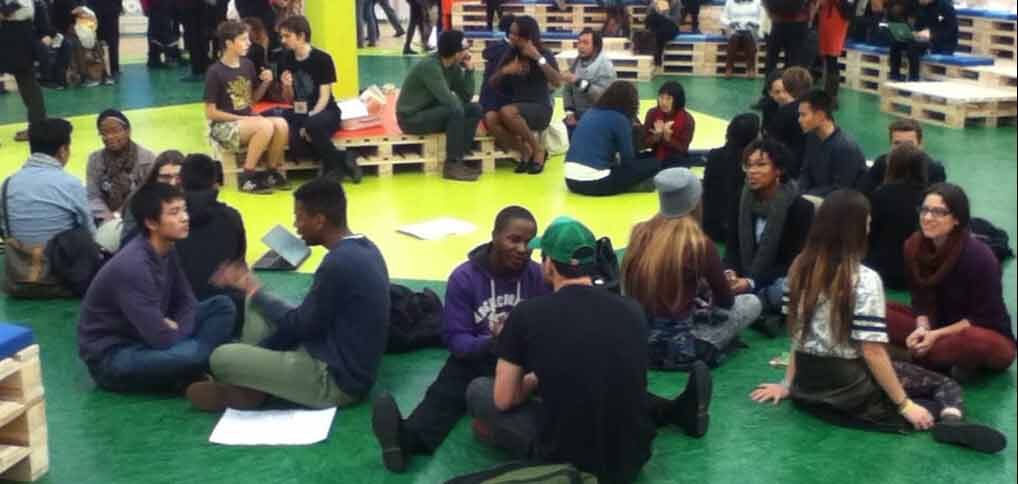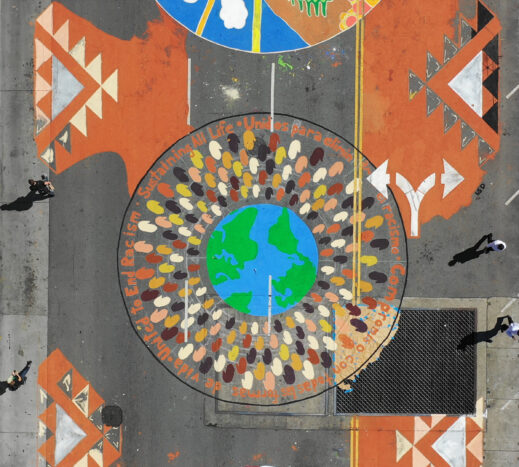
View this resource
in English (PDF) >>
***
View this resource
in Arabic (PDF)>>
***
View this resource
in Chinese (PDF) >>
***
View this resource
in Dutch (PDF) >>
***
View this resource
in Filipino (PDF)>>
***
View this resource
in French (PDF) >>
***
View this resource
in German (PDF) >>
***
View this resource
in Hebrew (PDF)>>
**
View this resource
in Hindi (PDF) >>
***
View this resource
in Italian (PDF) >>
***
View this resource
in Korean (PDF) >>
***
View this resource
in Portuguese (PDF)>>
***
View this resource
in Spanish (PDF) >>
It is possible to limit the effects of human-caused climate change and restore the environment—and some very large changes in our economy and the lives we live are needed for this to happen. Sustaining All Life and United to End Racism believe the environmental crisis cannot be resolved without ending racism, genocide toward Indigenous peoples, classism, sexism, and other oppressions. The impact of environmental destruction and climate change falls most heavily on people targeted by these particular oppressions. Making the changes needed will require a massive movement, spanning the globe, of people of every background fighting the effects of both climate change and racism.
In Sustaining All Life and United to End Racism we believe that the barriers to building a sufficiently large and powerful movement include (1) longstanding divisions (usually caused by oppression, and especially racism and classism) between nations and between groups of people, (2) widespread feelings of discouragement and powerlessness, (3) denial of or failure to engage with the escalating damage to the earth’s climate, and (4) difficulties in effectively addressing the connections between the environmental crisis and the failures of our economic system. Sustaining All Life and United to End Racism work to address these and other issues.
The role of oppression
The economic and political forms of our societies demand growth and profit with little regard for people, other life forms, or the earth. This results in exploitation and oppression. Oppressions (such as racism, classism, sexism, and the oppression of young people) target everyone, inflicting tremendous injustices, limiting access to resources, and damaging the lives of billions of people. Once targeted by oppression, we tend to act toward others in ways that repeat the hurts that we have experienced. Much of the mental and emotional damage done to humans is the result of this passing on of hurt. Though humans are vulnerable to acting in oppressive ways, oppressive behavior is not inherent, but arises only when a human has been hurt emotionally. Oppressive societies manipulate this vulnerability to establish and maintain economic exploitation.

The importance of healing personal damage
The mental and emotional harm done to us by oppression and other hurtful experiences interferes with our ability to think clearly and sets groups of people against each other. This makes it difficult for us to think about and respond effectively to the climate emergency. People would not cooperate with a society that exploits people and damages the environment if they had not first been hurt.
Healing from the hurts that help to hold oppression in place and lead to other damaging behavior is not quick or easy work. Many of us resist this work. We may have survived by numbing ourselves to the damage done to us by oppression. Some of us assume that we will never be free of this damage.
In Sustaining All Life and United to End Racism we have learned that it is possible to free ourselves from these hurts and address barriers to effective organizing. We can heal from hurtful experiences if someone listens to us attentively and allows and encourages us to release the grief, fear, and other painful emotions. This happens by means of our natural healing processes—talking, crying, trembling, expressing anger, and laughing. By releasing distressed feelings in a supportive network, we can stay united, hopeful, thoughtful, joyful, and committed. This in turn strengthens us in building our movements to stop the effects of climate change and racism.


